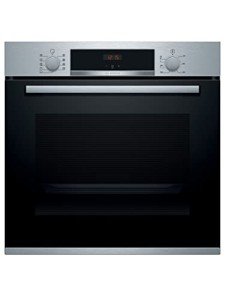30 Inspirational Quotes About Built In Oven
The Ultimate Guide to Built-In Electric Ovens: Features, Benefits, and Buying Tips
Intro
As cooking routines progress and kitchen styles become more advanced, built-in electric ovens offer a mix of usefulness and beauty for contemporary homes. built in gas oven and hob are designed to provide a seamless combination into kitchen cabinetry, enhancing both performance and visual appeals. In this short article, we will check out the various functions and advantages of built-in electric ovens, together with necessary considerations for prospective buyers.
Understanding Built-In Electric Ovens
Built-in electric ovens are set up directly into your kitchen cabinets, maximizing counter area and lending a streamlined look to the cooking area. They come in various sizes, styles, and functionalities to match various cooking requirements and kitchen layouts.
Kinds Of Built-In Electric Ovens
There are a number of kinds of built-in electric ovens, classified based upon their functionality and design:
- Single Ovens: A common choice for households, offering adequate cooking area.
- Double Ovens: Ideal for those who prepare in bigger amounts, enabling simultaneous cooking at different temperature levels.
- Wall Ovens: Installed at eye-level, making them more accessible than conventional ovens.
- Mix Ovens: These systems integrate regular baking with convection or microwave functions, including adaptability to cooking options.
Type
Description
Suitable For
Single Oven
One cooking cavity
Small households or people
Double Oven
2 different cooking cavities
Large families or avid cooks
Wall Oven
Installed at eye-level
Ease of access and style
Combination Oven
Uses multiple cooking methods
Adaptability in cooking
Key Features of Built-In Electric Ovens
Built-in electric ovens come packed with features designed to improve the cooking experience. Here are some common credit to think about:
Convection Cooking: Many contemporary electric ovens come with a convection option, which flows hot air for even cooking and quicker baking.
Smart Technology: Integration with clever home systems allows users to control their oven from another location through mobile phones.
Self-Cleaning Options: Self-cleaning modes burn off food residues, making it easy to preserve health without comprehensive scrubbing.
Variable Temperature Controls: Adjustable temperature level settings for precise cooking, ideal for baking delicate pastries or roasting meats.
Interior Lighting: Bright lighting inside the oven aids in monitoring food without opening the door.
Durable Materials: High-quality products, such as stainless steel or ceramic interiors, boost resilience and ease of cleansing.
Advantages of Built-In Electric Ovens
Area Efficiency: By integrating the oven into kitchen cabinetry, house owners can maximize kitchen area for other appliances and storage.
Aesthetic Appeal: Built-in designs add to a classy kitchen design, providing a tidy, minimalist appearance.
Increased Accessibility: Wall-mounted ovens remove the requirement for flexing down, supplying much easier gain access to for users of all ages.
Flexibility: With numerous settings and features, electric ovens accommodate numerous cooking designs and preferences.
Accuracy Cooking: Electric ovens tend to provide more precise temperature control compared to gas models, guaranteeing constant cooking outcomes.
Comparison of Built-In Electric Ovens
Picking the right built-in electric oven can be frustrating due to the variety of alternatives readily available. Here's a short comparison table of some popular brands:
Brand
Design
Capacity
Special Features
Cost Range
Whirlpool
WOS51EC0HS
5.0 cu feet
Smart innovation, self-cleaning
₤ 1,200 – ₤ 1,500
Samsung
NV51K6750CG
5.8 cu feet
Double convection, Wi-Fi connection
₤ 1,400 – ₤ 2,000
Bosch
HBL8453UC
4.6 cu feet
European style, numerous cooking modes
₤ 1,500 – ₤ 2,500
KitchenAid
KBSN608ESS
6.4 cu ft
Smooth design, temperature level probe
₤ 1,800 – ₤ 2,400
LG
LWS3063ST
6.3 cu feet
SmartThinQ technology, convection
₤ 1,400 – ₤ 2,100
Frequently Asked Questions (FAQs)
1. What is the average lifespan of a built-in electric oven?
Built-in electric ovens normally have a life expectancy of around 13 to 15 years, depending on use and maintenance.
2. How do I maintain my built-in electric oven?
Routine cleaning, preventing harsh chemicals, and ensuring appropriate ventilation throughout cooking will assist keep your oven's efficiency.
3. Are built-in electric ovens energy effective?
Yes, many built-in electric ovens are designed to be energy-efficient, with features that reduce energy use while making the most of cooking performance.
4. Can I install a built-in electric oven myself?
It is recommended to work with a professional plumbing technician or electrical contractor for installation, as correct electrical connections are important for safety.
5. What are the typical sizes for built-in electric ovens?
Requirement sizes typically range from 24 inches to 30 inches wide, though custom-made choices might be available.
Built-in electric ovens have actually ended up being a popular choice for house owners looking to enhance their kitchen's functionality and style. With a range of options, functions, and technology available, investing in a built-in electric oven can raise the cooking experience while adding value to your home. When picking built in ovens and hobs , consider your cooking needs, general kitchen design, and budget plan to ensure that your choice acts as a seamless and trendy addition to your culinary area.
